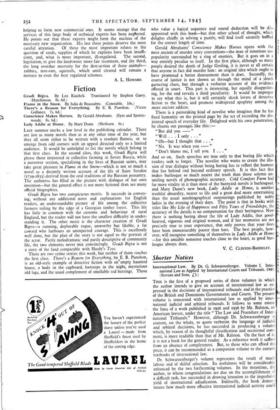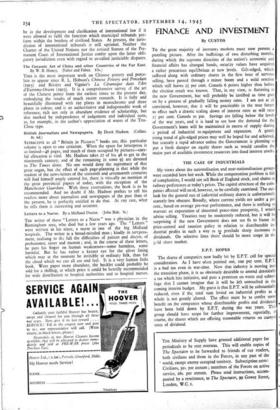Shorter Notices
5. International Law. By Dr. G. Schwarzenberger. Volume I. Inter- 6.
national Law as Applied by International Courts and Tribunals. 1945.
7
(Stevens and Sons. £3.)
Tuts is the first of a proposed series of three volumes in which the author intends to give an account of international law as ex- pressed in the decisions of international tribunals and in the practice of the British and Dominions Governments and Courts. The present voluine is concerned with international law as applied by inter- national judicial and arbitral tribunals. It follows to some extent the lines of a work published in 1926 and 1936 by Mr. Ralston, an American lawyer, under the title "The Law and Procedure of Inter- national Tribunals." However, although Dr. Schwarzenberger is content, on the whole, to quote verbatim the language of judicial and arbitral decisions, he has succeeded in producing a volume which, by reason of its thoughtful classification and occasional com- ment, is more readable than that of Mr. Ralston. On the face of it, it is not a book for the general reader. As a reference work it suffers from an absence of completeness. But, to those who can afford the price, it can be recommended as a companion volume to the current textbooks of international law.
Dr. Schwarzenberger's volume represents the result of much labour and Of skilful selection. Its usefulness will be considerably enhanced by the two forthcoming volumes. In the meantime, the author, to whom congratulations are due on the accomplishment of a difficult task, has succeeded in drawing 'attention to the impressive yield of international adjudication. Indirectly, the book demon- strates how much more effective international judicial activity could
be in the development and clarification of international law if it were allowed to fulfil the function which municipal tribunals per- form within the borders of civilised States. At present, the juris- diction of international tribunals is still optional. Neither the Charter of the United Nations nor the revised Statute of the Per- manent Court of International Justice confer upon the latter obli- gatory jurisdiction even with regard to so-called justiciable disputes.



























 Previous page
Previous page